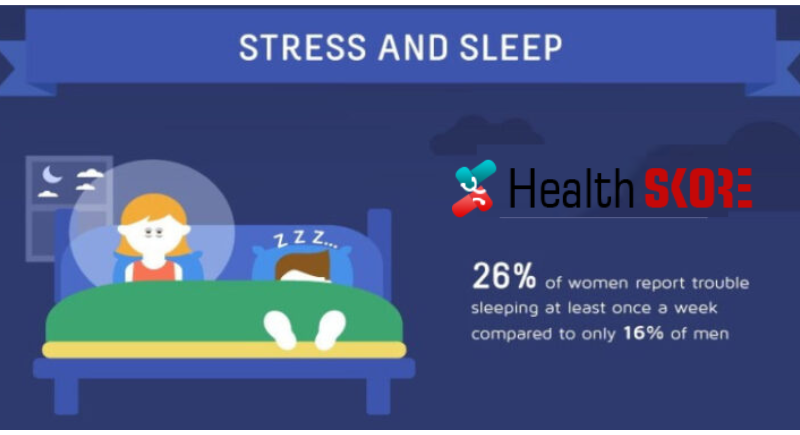What is the Relationship Between Stress and Sleep? If you find yourself being stressed and not getting enough sleep, you are not alone. A national sleep survey showed that about 40 percent of the respondents reported that they weren’t getting the recommended amount of sleep each night.
Many of the stress factors that we encounter in modern life, such as difficult co-workers, traffic jams, relationship conflicts, can trigger a fight-or-flight response. Prolonged exposure to these stressors without relaxation can cause a decline in the quality and duration of sleep.
Though there are various ways to cope with stress, some strategies are more effective than others to improve sleep quality and cope with chronic stress.
How Chronic Stress Affects Sleep?
When a person experiences a perceived threat – either physical or psychological, real or imaginary, their body’s hormonal responses get triggered. It leads to cascading hormonal changes that result in the release of cortisol by the endocrine system.
The cortisol release and other stress hormones create an energy burst that allows a person to fight or run from present danger. A healthy stress response involves a rapid cortisol spike followed by a sudden decrease once the troubling event has passed. The negative feedback loops mediated by hypothalamic-pituitary-adrenal (HPA) access in the central nervous system controls the endocrine system response.
It is also essential to know that HPA access also plays a significant role in modulating the 24 hours sleep-wake cycle. High-stress levels for a prolonged time can cause HPA access hyperactivity, decreased sleep duration, as well as reduced delta power, and REM sleep. It results in more inferior sleep quality, lower mood regulation, and impaired memory; all this can, in turn, cause stress.
Stress Management and Sleep Strategies
If your sleep problems are the side effects of stress, implementing healthy stress management techniques before going to bed might make sleep come easier.
Stress management can be in many forms; you can opt for emotional engagement or emotional disengagement.
Furthermore, one study shows that strategies that enhance emotional awareness and reduce emotional avoidance help minimize stress’s impact on sleep onset latency. In contrast, methods that increase avoidance, like alcohol use, can result in longer sleep delays.
Healthy stress management strategies that decrease emotional avoidance include simple breathing exercises and meditation, reducing tension in the body, and lower stress hormone levels. It can help you fall asleep more easily.
Problem-solving tasks can also help reduce stress. However, it can be stimulating, so try not to do it immediately before bedtime. Instead, you can do it during the day.
It is also vital to balance the time you have between stress management and sleep. Try educating yourself about various stress management sleep techniques, and read further about a good night’s sleep’s benefits. It will inspire you to create a well thought out plan to make space in your busy schedule to do things that can help reduce your stress levels before you go to bed.
Takeaway
While stress is a significant contributor to sleeping problems, not all sleeping issues are due directly or entirely to tension. Some hormonal changes that come with menopause or even the natural aging process can affect a person’s sleep patterns.
Various medicines can also negatively impact sleep, and so can alcohol, caffeine, and other foods that you might consume.
If you are managing your sell well, and still your sleep has not improved, try consulting a doctor to see if any other factors affect your sleep or a sleep disorder causing the problems.



